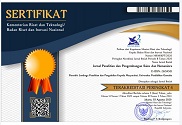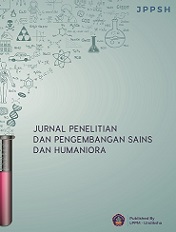Mimikri dan Hibriditas Novel Para Priyayi (Kajian Poskolonial)
DOI:
https://doi.org/10.23887/jppsh.v2i2.15972Keywords:
mimikri, hibriditas, poskolonialAbstract
: Praktik koloniaslisme di tanah air yang berlangsung selama tiga setengah abad telah membawa banyak perubahan mendasar pada garis-garis kultural bangsa Indonesia, sebagai bangsa terjajah. Hal ini kemudian tergambar jelas dalam karya sastra poskolonial yang terbit kala itu, termasuk novel Para Priyayi karya Umar Kayam. Pendeskripsian realitas fiksi dan realitas historis tersebut telah memunculkan pola mimikri dan hibriditas. Berdasarkan pengkajian dengan metode hermeutika dan deskriptif berhasil diungkap beberapa hal berikut. Pertama, gejala mimikri yang muncul dalam novel Para Priyayi setidaknya mencakup tiga hal , yaitu (1) mimikri dalam berbahasa; (2) mimikri sebagai penyesuaian etika dan kategori ideal; (3) dan local genius mimikri. Kedua, gejala hibriditas muncul dalam lingkungan sekolah, birokrasi kepemimpinan, dan pendirian sekolah dan perhimpunan organisasi-organisasi pemuda.Downloads
Published
2019-05-06
Issue
Section
Articles
License
Authors who publish with the Jurnal Penelitian dan Pengembangan Sains dan Humaniora agree to the following terms:
- Authors retain copyright and grant the journal the right of first publication with the work simultaneously licensed under a Creative Commons Attribution License (CC BY-SA 4.0) that allows others to share the work with an acknowledgment of the work's authorship and initial publication in this journal.
- Authors are able to enter into separate, additional contractual arrangements for the non-exclusive distribution of the journal's published version of the work (e.g., post it to an institutional repository or publish it in a book), with an acknowledgment of its initial publication in this journal.
- Authors are permitted and encouraged to post their work online (e.g., in institutional repositories or on their website) prior to and during the submission process, as it can lead to productive exchanges, as well as earlier and greater citation of published work. (See The Effect of Open Access)










